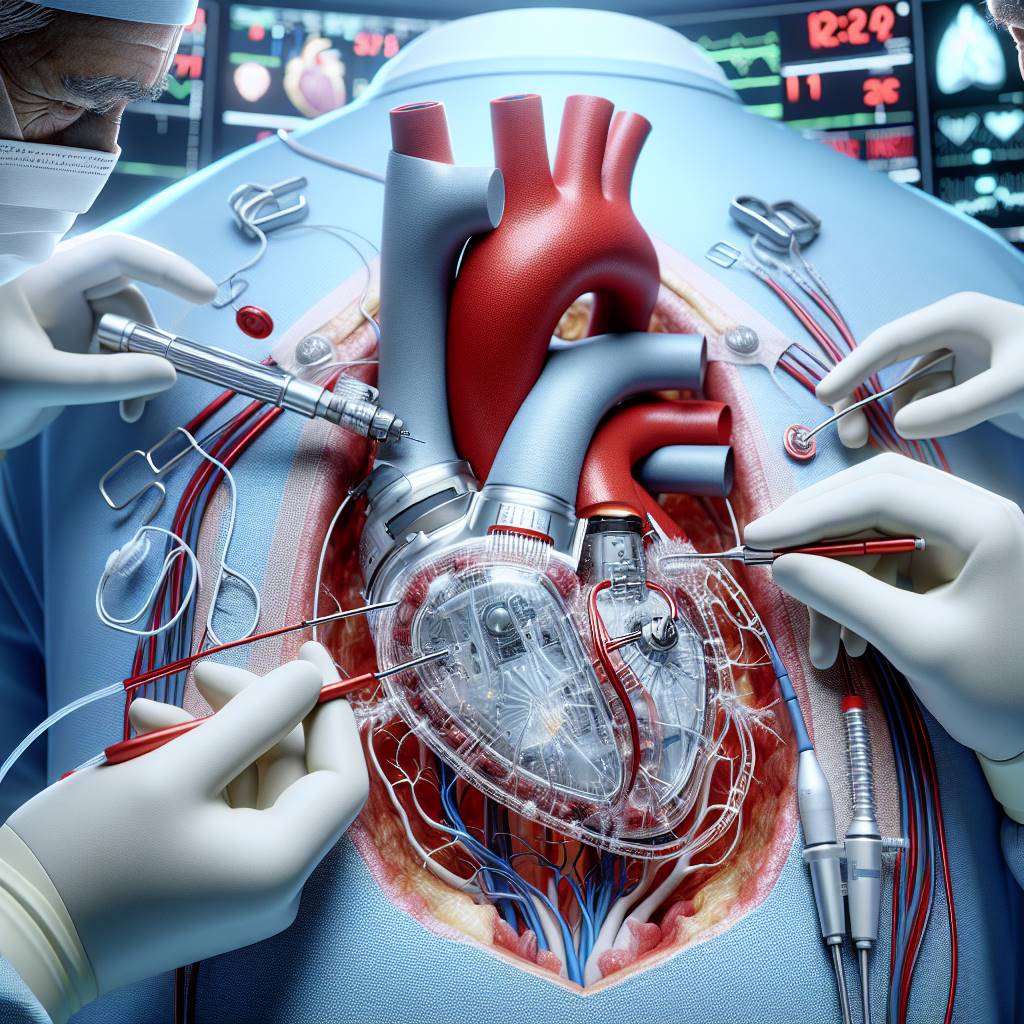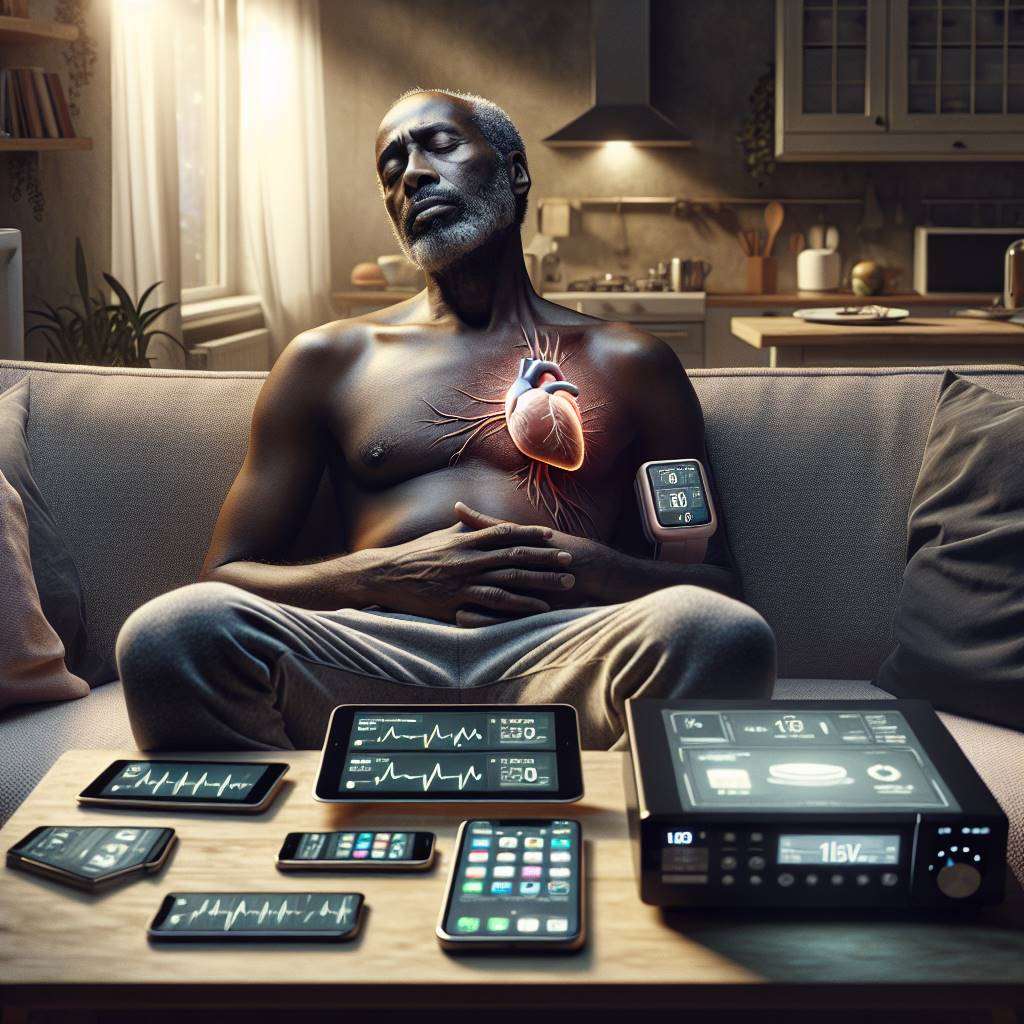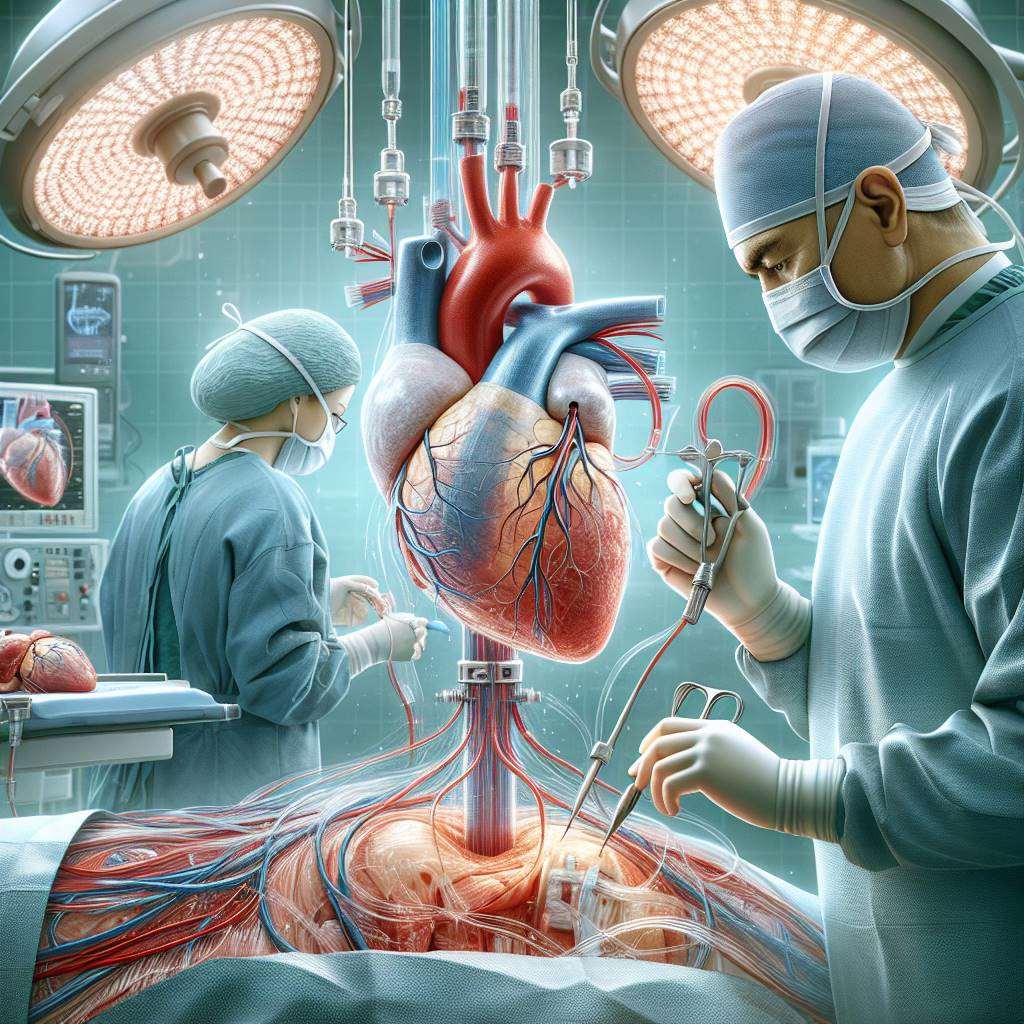Automatic Implantable Cardioverter Defibrillators (AICDs) are life-saving devices designed to monitor and treat abnormal heart rhythms. Despite their importance, many misconceptions surround their use, leading to confusion and fear among patients. Understanding the facts about AICDs can help individuals make informed decisions about their heart health.
Medical disclaimer: This content is for general awareness and does not replace a doctor’s consultation. For diagnosis or treatment decisions, consult a qualified specialist.
Myths about AICD implantation often deter patients from seeking this critical treatment. From concerns about age restrictions to fears of unnecessary shocks, these misconceptions can prevent people from benefiting from this advanced technology. By debunking these myths, we aim to raise awareness and provide clarity for patients and caregivers alike.
What Is an AICD? Separating Facts from Fiction
An AICD, or Automatic Implantable Cardioverter Defibrillator, is a small device implanted in the chest to monitor and correct life-threatening arrhythmias. It delivers electrical shocks when it detects irregular heart rhythms, helping to prevent sudden cardiac arrest. However, many people misunderstand its purpose and function.
One common myth is that an AICD is the same as a pacemaker. While both devices regulate heart rhythms, an AICD is specifically designed to treat dangerous arrhythmias by delivering a shock, whereas pacemakers primarily manage slow heart rates. Understanding this distinction is crucial for patients considering treatment options.
Additionally, some believe that AICDs are constantly shocking the heart, which is untrue. The device only activates when necessary, ensuring patient safety and comfort. By addressing these misconceptions, patients can better appreciate the life-saving potential of AICDs.

Are AICDs Only for the Elderly? Myth vs Reality
A common misconception is that AICDs are only suitable for elderly patients. While it is true that older individuals often require these devices due to age-related heart conditions, younger patients with specific cardiac disorders can also benefit from AICDs.
Conditions such as hypertrophic cardiomyopathy or congenital heart defects can increase the risk of sudden cardiac arrest in younger individuals. In such cases, an AICD can be a life-saving intervention. The decision to implant an AICD is based on the patient’s medical history, not their age.
By dispelling the myth that AICDs are age-restricted, we can encourage patients of all ages to explore this treatment option if recommended by their cardiologist. Early intervention can significantly improve outcomes and provide peace of mind for patients and their families.
Can an AICD Shock You Without Warning?
Many patients fear that an AICD might deliver shocks unexpectedly, causing discomfort or distress. However, this is a myth. AICDs are designed to monitor heart rhythms continuously and only deliver a shock when a life-threatening arrhythmia is detected.
The device uses advanced algorithms to differentiate between normal variations in heart rate and dangerous conditions like ventricular fibrillation. This ensures that shocks are delivered only when absolutely necessary. In most cases, patients may feel a brief sensation before the shock, but it is a small price to pay for preventing cardiac arrest.
Patients concerned about unnecessary shocks should discuss their fears with their cardiologist. Regular follow-ups and device checks can ensure the AICD is functioning optimally, providing both safety and reassurance.
Do AICDs Completely Cure Heart Conditions?
Another widespread myth is that an AICD cures heart conditions. While AICDs are highly effective in preventing sudden cardiac arrest, they do not treat the underlying cause of arrhythmias. Instead, they act as a safety net, intervening when dangerous heart rhythms occur.
Patients with an AICD often require additional treatments such as medications, lifestyle changes, or procedures like cardiac ablation to manage their condition. The AICD complements these treatments by providing immediate protection against life-threatening events.
It is essential for patients to understand that an AICD is part of a comprehensive treatment plan. By combining the device with other therapies, patients can achieve better heart health and reduce the risk of complications.
| Myth |
Reality |
| AICDs cure heart disease |
AICDs prevent sudden cardiac arrest but do not treat the underlying condition |
| AICDs work alone |
AICDs are part of a broader treatment plan |
Is Surgery for AICD Implantation Risky or Painful?
The idea that AICD implantation is a high-risk or painful procedure often deters patients. In reality, the surgery is minimally invasive and typically performed under local anesthesia with sedation. Most patients experience only mild discomfort during recovery.
Like any medical procedure, AICD implantation carries some risks, such as infection or bleeding. However, these complications are rare, and the benefits of the device far outweigh the potential risks for eligible patients. Surgeons take every precaution to ensure a safe and successful procedure.
Patients should discuss their concerns with their healthcare provider to understand the procedure and recovery process better. With proper care and follow-up, most individuals adapt well to life with an AICD, enjoying improved safety and quality of life.
Are AICDs Unsafe Around Everyday Electronic Devices?
One of the most common myths about Automatic Implantable Cardioverter Defibrillators (AICDs) is that they are unsafe around everyday electronic devices. While it is true that certain devices can interfere with the functioning of an AICD, modern technology has significantly reduced these risks.
Most household electronics, such as microwaves, televisions, and smartphones, are safe to use if you have an AICD. However, patients are advised to keep devices like mobile phones at least 15 cm away from the implant site. Strong electromagnetic fields, such as those from industrial equipment or MRI machines, may require special precautions.
- Keep mobile phones on the opposite side of your body from the AICD.
- Avoid prolonged exposure to metal detectors or security scanners.
- Consult your doctor before undergoing medical procedures involving strong electromagnetic fields.
By following these guidelines, you can safely use most electronic devices without worrying about interference with your AICD.

Can You Lead a Normal Life with an AICD?
Many people believe that having an AICD means giving up on a normal lifestyle. This is far from the truth. An AICD is designed to monitor and regulate your heart rhythm, allowing you to live a healthier and more active life.
After the initial recovery period, most patients can resume their daily activities, including work, exercise, and social events. Activities such as swimming, walking, and light jogging are generally safe. However, high-impact sports or activities that involve heavy physical strain may need to be avoided or modified.
It’s important to follow your doctor’s advice and attend regular follow-ups to ensure your AICD is functioning optimally. With proper care, you can enjoy a fulfilling life while managing your heart condition effectively.
Do AICDs Frequently Deliver Unnecessary Shocks?
A common concern among patients is that AICDs might deliver unnecessary or painful shocks. While an AICD is programmed to detect and correct abnormal heart rhythms, it is highly accurate in distinguishing between dangerous arrhythmias and normal heart activity.
Unnecessary shocks are rare and often occur due to device misprogramming or external interference. Modern AICDs are equipped with advanced algorithms to minimize such occurrences. If you experience frequent shocks, it is crucial to consult your cardiologist immediately to adjust the device settings.
Remember, the primary purpose of an AICD is to save lives by preventing sudden cardiac arrest. The occasional discomfort of a shock is a small price to pay for the protection it offers against life-threatening arrhythmias.
Are AICDs Only for Patients with Severe Heart Issues?
Another misconception is that AICDs are only recommended for patients with severe heart conditions. While it is true that AICDs are often used for individuals at high risk of sudden cardiac arrest, they are also prescribed for patients with moderate heart issues who may benefit from preventive care.
For example, patients with ventricular arrhythmias, a history of heart attacks, or weakened heart muscles (cardiomyopathy) may be candidates for an AICD. The decision to implant an AICD is based on a thorough evaluation of the patient’s medical history, heart function, and risk factors.
By providing early intervention, AICDs can help prevent complications and improve the quality of life for a wide range of patients, not just those with severe heart conditions.
Can an AICD Malfunction and Harm the Patient?
Concerns about AICD malfunctions are understandable but largely unfounded. Modern AICDs are highly reliable and undergo rigorous testing to ensure safety and effectiveness. Malfunctions are extremely rare and are usually detected during routine follow-ups.
In rare cases, issues such as battery depletion or lead displacement may occur. These problems can be addressed promptly through regular monitoring and timely intervention. It is essential to report any unusual symptoms, such as dizziness or chest discomfort, to your doctor immediately.
| Potential Issue |
Solution |
| Battery depletion |
Replace the battery during a scheduled procedure. |
| Lead displacement |
Reposition or replace the lead through minor surgery. |
With advancements in technology and regular medical care, the risk of AICD malfunctions harming a patient is minimal.
Are AICDs Too Expensive for Most Patients?
One common misconception about Automatic Implantable Cardioverter Defibrillators (AICDs) is that they are unaffordable for the majority of patients. While it is true that AICDs can be costly, many hospitals and healthcare providers in India offer financial assistance or insurance coverage to make them accessible.
Additionally, the cost of an AICD should be weighed against the potential benefits, such as preventing life-threatening cardiac arrhythmias. For patients at high risk of sudden cardiac arrest, the device can be a lifesaver. Government schemes and charitable organizations also help reduce the financial burden for eligible patients.
It is important to consult with your cardiologist to explore all available options, including payment plans and subsidies, to ensure you receive the care you need without undue financial stress.

Do AICDs Require Frequent Maintenance or Replacement?
Another myth is that AICDs require constant maintenance or frequent replacement. In reality, modern AICDs are designed to last several years, typically between 5 to 10 years, depending on usage and battery life. Routine follow-ups with your cardiologist are sufficient to monitor the device's performance.
During these check-ups, your doctor will assess the battery status and ensure the device is functioning correctly. Replacement is only required when the battery is depleted, which is a straightforward procedure. Patients should not worry about frequent surgeries or disruptions to their lives.
By following your doctor’s advice and attending regular check-ups, you can ensure your AICD continues to work effectively, providing peace of mind and protection against serious heart conditions like ventricular fibrillation.
Can You Exercise or Travel with an AICD Safely?
Many people believe that having an AICD means they cannot exercise or travel, but this is not true. While certain precautions are necessary, most patients with AICDs can lead active lives. Light to moderate exercise is generally safe and even encouraged to maintain overall heart health.
When it comes to travel, patients should carry their medical records and inform airport security about their device, as metal detectors may interfere with the AICD. However, this does not mean you cannot travel. Modern AICDs are designed to withstand electromagnetic interference from most devices and environments.
Always consult your doctor before starting a new exercise routine or planning a trip. With proper guidance, you can enjoy a fulfilling and mobile lifestyle while managing your cardiac health.
Are AICDs the Same as Pacemakers? Key Differences
It is a common misconception that AICDs and pacemakers are the same. While both are implantable devices used to manage heart conditions, they serve different purposes. A pacemaker primarily regulates slow heart rhythms, while an AICD is designed to detect and correct life-threatening fast rhythms like ventricular tachycardia.
The table below highlights the key differences:
| Feature |
Pacemaker |
AICD |
| Primary Function |
Regulates slow heartbeats |
Detects and corrects fast, irregular heartbeats |
| Shock Delivery |
No |
Yes |
| Target Conditions |
Bradycardia |
Ventricular tachycardia, fibrillation |
Understanding these differences can help patients make informed decisions about their treatment options and avoid confusion.
Do AICDs Limit Your Lifestyle or Daily Activities?
Many patients worry that an AICD will restrict their daily activities or limit their lifestyle. However, this is largely a myth. While there are some precautions to follow, such as avoiding strong electromagnetic fields, most people with AICDs can continue their normal routines.
Activities like walking, working, and even light sports are generally safe. Patients should avoid contact sports to prevent damage to the device. It is also important to follow your doctor’s advice regarding specific activities, especially during the initial recovery period after implantation.
With proper care and guidance, an AICD can enhance your quality of life by providing protection against serious heart conditions without significantly impacting your daily activities.
Best Aicd Implantation Doctors in India
Two highly reputed doctors specializing in AICD implantation in India are Dr. Balbir Singh, Chairman of Cardiology at Max Super Speciality Hospital, Delhi, with over 30 years of experience, and Dr. Naresh Trehan, Chairman of Medanta - The Medicity, Gurugram, with international recognition and 40+ years of expertise. Both are renowned for their excellence in interventional cardiology and electrophysiology.
Learn more on best aicd implantation doctors in india
Best Aicd Implantation Hospitals in India
Leading hospitals for AICD implantation in India include Fortis Escorts Heart Institute, Delhi, known for its advanced electrophysiology labs and multidisciplinary cardiac care, and Apollo Hospitals, Chennai, offering JCI-accredited facilities and robotic-assisted cardiac procedures. Both hospitals provide international patient services and have a track record of successful outcomes.
Find more best aicd implantation hospitals in india
Aicd Implantation Cost in India
The cost of AICD implantation in India typically ranges from INR 5,00,000 to INR 12,00,000 (approximately USD 6,000 to USD 15,000). Factors influencing the cost include the type of device, hospital category, and doctor’s expertise. The average hospital stay is 2–5 days. India offers a significant cost advantage compared to Western countries, with options for insurance coverage or third-party financing.
Learn aicd implantation cost in india
Aicd Implantation Treatment in India
AICD implantation in India involves minimally invasive techniques, where the device is placed under the skin and connected to the heart via leads. Advanced technologies like 3D mapping and robotic guidance ensure precision. Recovery typically takes 1–2 weeks. Top hospitals adhere to global medical protocols and adopt innovations to enhance patient outcomes.
Learn on Aicd Implantation Treatment in India
FAQs
What is an AICD?
An AICD (Automated Implantable Cardioverter Defibrillator) is a small device implanted in the chest to monitor and regulate abnormal heart rhythms. It delivers electrical shocks to restore normal rhythm in cases of life-threatening arrhythmias.
Who needs an AICD?
An AICD is recommended for patients at high risk of sudden cardiac arrest due to conditions like ventricular fibrillation, heart failure, or a history of life-threatening arrhythmias.
Is AICD implantation a major surgery?
No, AICD implantation is a minimally invasive procedure performed under local anesthesia. It typically requires a short hospital stay and has a quick recovery period.
How long does an AICD last?
The battery life of an AICD usually ranges from 5 to 10 years, depending on usage. Regular follow-ups are essential to monitor its performance and replace the battery when needed.
Are there any risks associated with AICD implantation?
While AICD implantation is generally safe, potential risks include infection, bleeding, or lead displacement. These risks are minimized with experienced doctors and advanced techniques.
Can I live a normal life with an AICD?
Yes, most patients with an AICD can lead normal lives. However, certain precautions, like avoiding strong electromagnetic fields, are necessary to ensure the device functions properly.
Will I feel the shocks from the AICD?
Patients may feel a brief, strong jolt when the AICD delivers a shock to correct a dangerous arrhythmia. This is a sign that the device is working as intended.
Can I travel with an AICD?
Yes, patients with an AICD can travel. It is advisable to carry a medical ID card and inform airport security about the device to avoid issues with metal detectors.
How often do I need follow-ups after AICD implantation?
Regular follow-ups, typically every 3–6 months, are necessary to check the AICD's functionality and battery status. Remote monitoring may also be available.
Is AICD implantation covered by insurance?
Yes, most health insurance policies in India cover AICD implantation. It is advisable to check with your provider for specific coverage details.
Understanding AICD: Key Differences and Daily Life Considerations
An Automated Implantable Cardioverter Defibrillator (AICD) plays a crucial role in managing life-threatening heart rhythms. However, many patients often wonder about the differences between AICD shocks and antitachycardia pacing. For a detailed comparison, check out our blog on AICD Shocks vs. Antitachycardia Pacing, which explains how these two mechanisms function to protect the heart.
Living with an AICD also comes with its own set of lifestyle adjustments. Patients frequently ask about the implications for driving, traveling, and daily activities. To navigate these challenges effectively, our article on Life with an AICD: Driving, Traveling, and Daily Restrictions provides essential insights and tips for maintaining a fulfilling life while managing an AICD.
Understanding both the technical aspects and lifestyle implications of having an AICD can empower patients to make informed decisions about their health and daily routines.